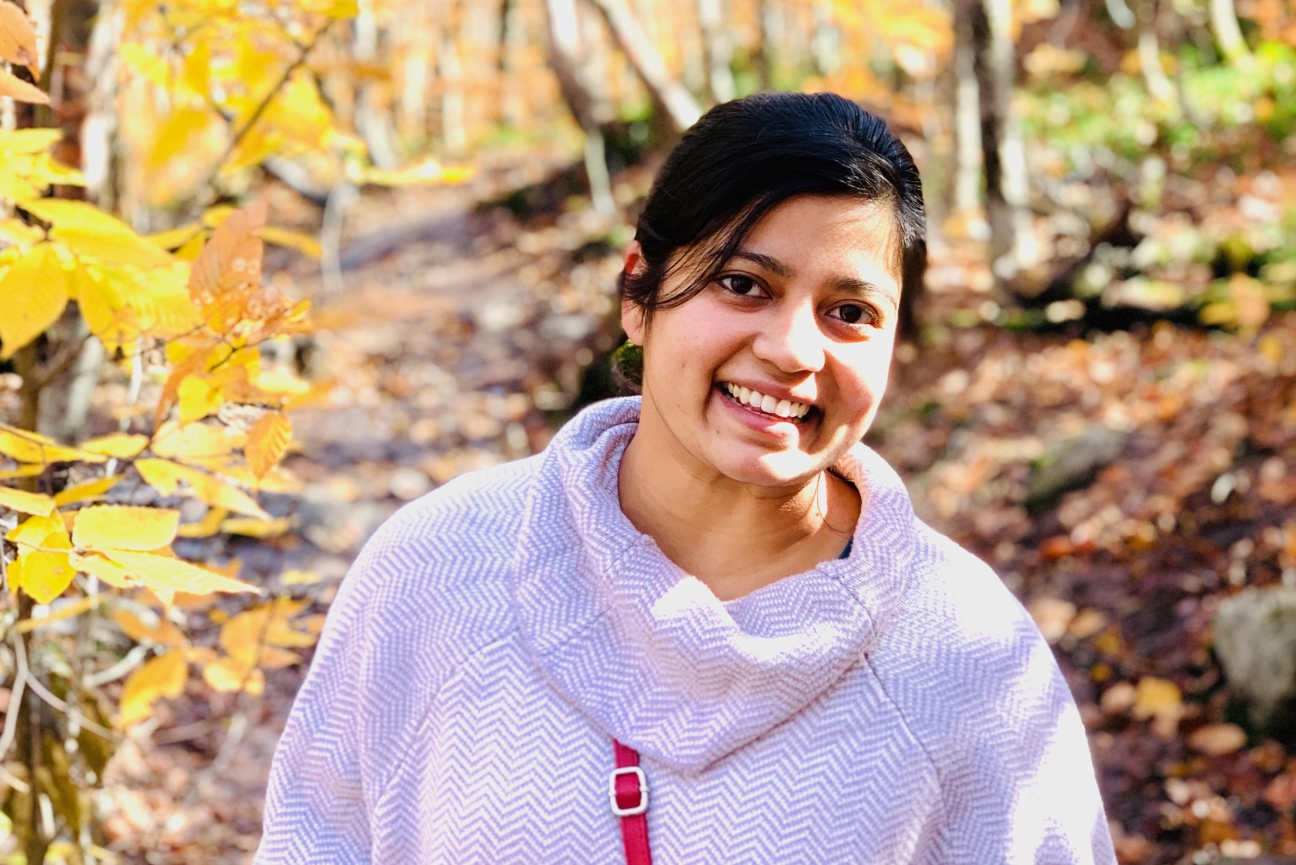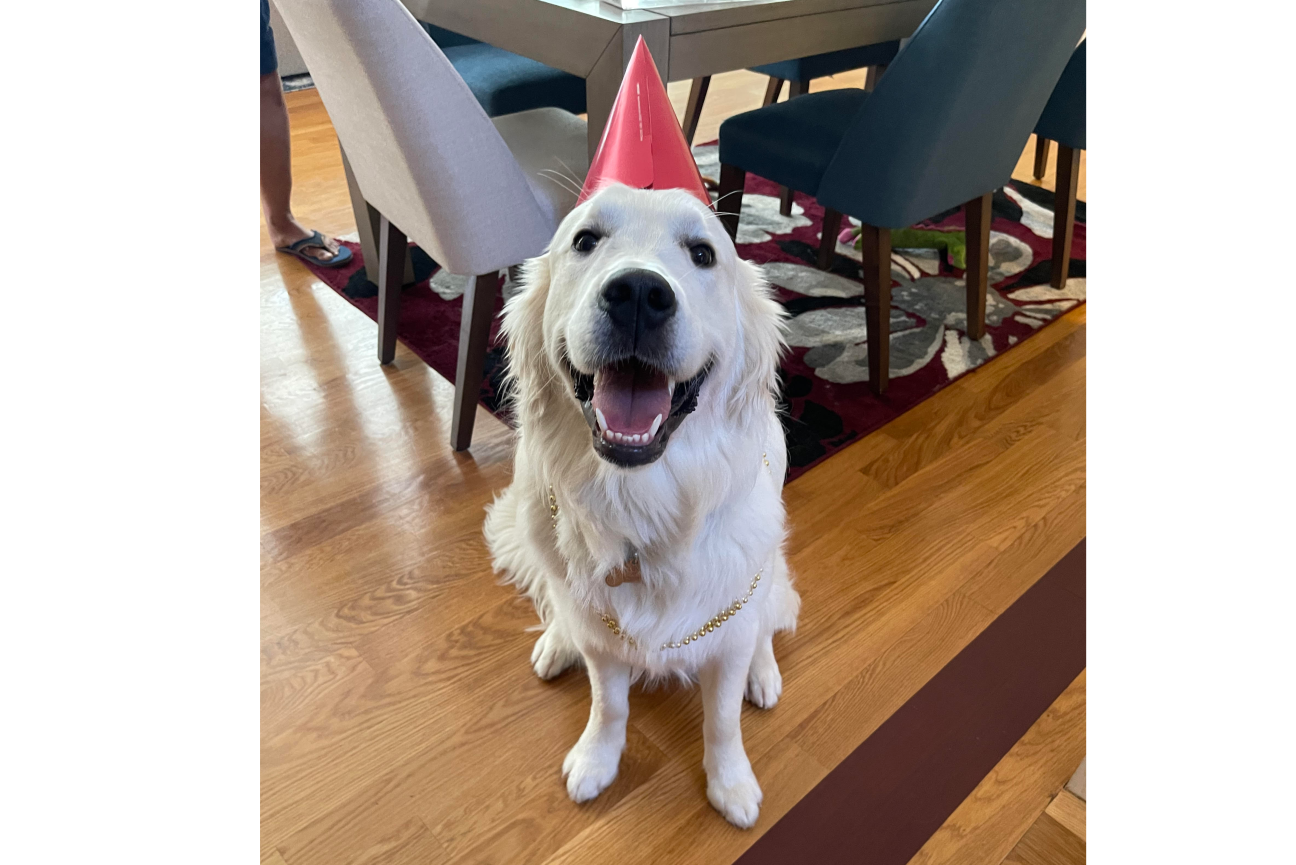
Courtesy of Pavana Rotti
Meet a Whitehead Postdoc: Pavana Rotti
Pavana Rotti is a postdoc in Whitehead Institute Member Olivia Corradin’s lab studying the neurobiology of opioid use disorder. We sat down with Pavana to learn more about her and her experiences in and out of the lab.
What are you investigating?
I’m working on understanding the neurobiology of opioid addiction or opioid use disorder. There have been a lot of studies indicating that changes in the genome are associated with opioid use disorder, but nobody really knows the impact of those changes. How do those genes contribute to opioid use disorder, and what are the cellular mechanisms impacted? That’s what I’m trying to understand. I’m systematically categorizing these changes in the genome associated with opioid use disorder, and trying to compile a list of modifications in the cell that they could be causing. Using a scientific approach to understand the factors contributing to opioid addiction, instead of dismissing it as a moral failing, makes this a very interesting new area of study, and we hope that what we learn can be used to help people and to combat the opioid crisis.
When you were a kid, what did you want to be?
A lot of things. At one point I wanted to be a police officer. Then I want to be a forensic scientist. I wanted to be a politician. I had different idols at different times, and so my ideal profession changed.
Where did you grow up?
I grew up in a city called Bangalore in the south of India. It’s changed a lot in the last few decades, and I grew up there as it was changing so I have seen both versions of Bangalore: the quieter place that it was and the tech hub that it is now. I do miss it, and I miss the food. I personally don't think you can find a dosa as tasty as you can find in Bangalore anywhere else in the world. Also, especially in the summer, I particularly miss mangoes. India produces a wide variety of mangoes, and you don’t get the same quality of mangoes here.
When did you become interested in a career in science?
It came on gradually, but if I had to try to pinpoint a specific time, I’d say during my postbac. I was working at the Tata Fundamental Research Institute (National Center for Biological Sciences) and I attended a super resolution microscopy conference. I'm very interested in microscopy. In one session, they stained the mitotic spindle fibers and you could actually visualize the cell dividing. It was such a simple thing, I mean we had all studied cell division, but to actually see it, to look at biology in action at high resolution that day was very inspiring. That's when I really became interested in pursuing academic research and working in an academic setting.
What are your hobbies outside of work?
I recently gave birth to my daughter, so I don't really have any hobbies right now, but before that, my biggest hobby was probably dance. I was trained in Indian classical dance for about twenty years of my life. I also like to read books and go for hikes whenever possible. Nothing too adventurous. A long hike is okay, but I wouldn't try to finish the hike in a preset time or anything. Although you have to be careful with timing. One of my favorite and most memorable hikes was Mount Moosilauke in New Hampshire. It was a really good hike, but we came down close to sunset, so we had to hurry all the way back down, worried we wouldn’t make it before dark.
Can you tell me more about your dance training?
It’s a dance form called Bharatanatyam and it's one of the classical forms of dance in India. It’s difficult to learn, like ballet; you start training really young and you continue dancing for a long time, maybe a decade, before you get to the point where you can actually perform on stage. I gave a lot of performances in India before I moved to the United States, but I haven't been able to pursue it as much here. What I enjoy about it is the rhythmic movement. There are two parts to it. There's just the pure movement, and then that can be combined with facial expression, which makes it more theatrical. The combination of the two works really well for dance-dramas. For the facial expressions, you learn how to portray certain emotions without talking. That's really difficult and it is one of my favorite parts of Bharatanatyam.

Atom, Pavana's English cream retriever.
Courtesy of Pavana Rotti
How do you balance postdoc life with outside life, especially as a new parent?
My life has changed a lot as a new parent. But I find that postdoc life provides good flexibility to help balance work and life. I think there's no perfect time in life to have a child; you're going to go through the same difficulties initially and then you'll get it together and start enjoying it a lot. But in academia, we have the flexibility of coming in when we want to and getting our work done. There have been times when coming in very early in the morning, at 5 AM, has suited my day because I can leave after completing my work and take care of my child. That flexibility has been really helpful. Also, I’m thankful to have a very supportive husband. That helps a lot in getting things done both at home and here in the lab.
What’s the biggest disaster you’ve had in the lab?
There was a long experiment, I think I had been working on it for a month, and the final step depended on a simple calculation that I thought I could do without a calculator. I made a mistake and added the wrong concentration of a drug. The whole experiment had to be repeated.
What is your favorite meal to cook or eat?
It’s a very simple South Indian meal called rasam and rice. It’s a spicy lentil soup mixed with rice. For me it's comfort food, especially for on a rainy day or when you have a cold.
Where do you see yourself in ten years?
I'm hoping that I will still be in an academic setting, and I'll be able to have a research lab of my own in a university, where I can pursue research and mentor young scientists.
Do you enjoy mentoring? Has mentorship been important for you in your career?
Mentorship has been very important for me, and mentoring others is also something I enjoy doing. I think your peers are your best mentors. In general, it’s so helpful to talk to people—fellow grad students, fellow postdocs—about your science, your projects, what you're trying to find, and your techniques. One thing that I’ve really appreciated at Whitehead Institute is that you can reach out to any postdoc or any grad student you want from any lab. It's an open and collaborative environment. For example, right now I'm gearing up to do a perturb seq experiment, and the Weissman lab at Whitehead Institute has done so much to develop that technique, so I’ve been discussing the experiment with members of the lab. The fact that I was able to just approach their lab and get in conversation with them was very helpful in planning the experiment.
Do you have any pets?
I have a dog, a two-year-old English cream retriever. He’s called Atom—I wanted a short, science-y name. He’s got a very happy personality. He really loves people and loves welcoming people into the house. We take him on hikes and he just runs about. It's a lot of fun watching him exploring.
Topics
Contact
Communications and Public Affairs
Phone: 617-452-4630
Email: newsroom@wi.mit.edu


